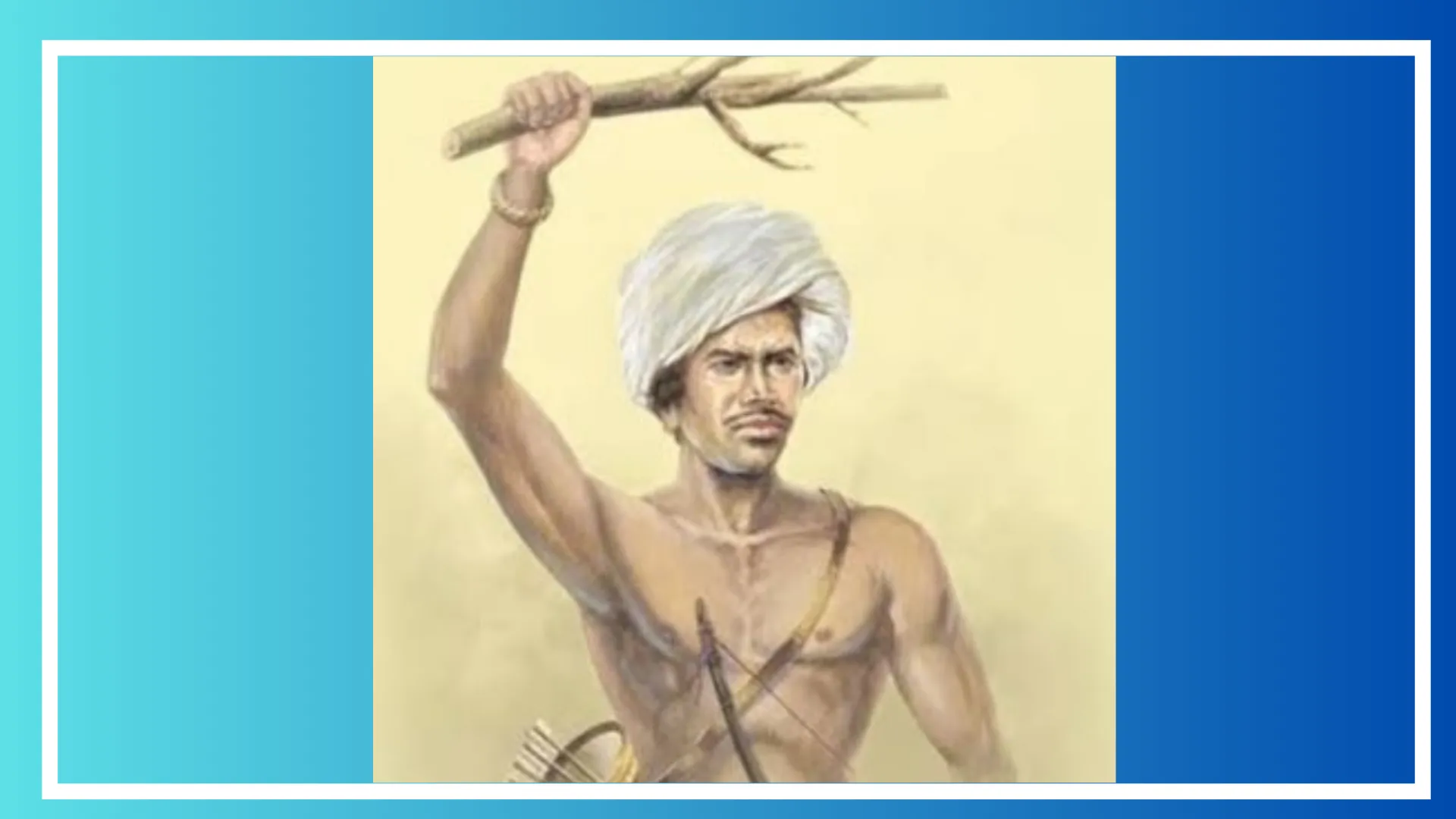Birsa Munda
In the heartland of Jharkhand, a figure emerges from the pages of history, resonating with the spirit of resistance and freedom – Birsa Munda. Often hailed as the tribal hero, Birsa Munda’s life is a compelling tale of resilience, leadership, and an unwavering commitment to the rights of his people. Join us on a journey through the life and legacy of this iconic tribal leader.
Early Life and Background
Birsa Munda was born in the late 19th century in the Munda tribe, an Adivasi community in what is now Jharkhand. His childhood was marked by exposure to the struggles faced by his people due to British colonialism and the exploitation of natural resources in their ancestral lands.
Birsa Munda (1875–1900) was a tribal leader and folk hero who played a significant role in the Indian independence movement. He was born on June 15, 1875, in Ulihatu, Bihar, British India (now in Jharkhand, India). Birsa Munda belonged to the Munda tribe, an Adivasi community in India.
The Munda tribe, deeply connected to their land, faced the brunt of British policies that sought to exploit the region’s abundant resources for economic gains. This period of colonial rule led to widespread displacement, cultural erosion, and economic hardships for the indigenous communities, including the Mundas.
Birsa Munda’s formative years were a crucible of experiences, fueling his resolve to resist the injustices perpetrated on his people. The British encroachments on their traditional way of life and the plunder of their natural resources sowed the seeds of discontent that would later blossom into a full-fledged movement for freedom and tribal rights.
In the crucible of adversity, Birsa Munda’s early life laid the foundation for his later role as a charismatic leader and warrior, ultimately guiding his people in a valiant struggle against the forces of oppression. His story is one of resilience, determination, and an unyielding commitment to securing justice and freedom for the Munda tribe in the face of colonial adversity.
Birsa’s Role in the Ulgulan (Tribal Uprising)
The late 19th century saw the rise of Birsa Munda as a charismatic leader during the Ulgulan, or the Tamar Revolt (1899-1900). Disturbed by the oppressive policies of the British and the missionaries, Birsa led the Munda community in a valiant struggle for their rights, culture, and land.
Birsa Munda’s Vision and Philosophy
Birsa Munda was not merely a warrior; he was a visionary with a profound philosophy. His emphasis on the worship of one god, ‘Birsait,’ and the call for the Mundas to return to their traditional faith marked him as a spiritual and cultural leader. His vision extended beyond the immediate struggle for freedom, aiming at the preservation of Munda identity and culture.
Legacy and Recognition
While Birsa Munda did not witness the immediate fruits of his struggle, his legacy lives on. Jharkhand, carved out of Bihar in the year 2000, celebrates Birsa Munda’s birthday on 15th November as a state holiday. Various institutions, including the Birsa Institute of Technology, are named in his honor. His life is a symbol of inspiration for generations, especially in the tribal communities.
Birsa Munda in Popular Culture
Birsa Munda’s story has not been confined to history books. It has found resonance in literature, music, and art. Numerous folk songs and dances celebrate his heroism, ensuring that his tale is passed down through generations. His life has also been the subject of documentaries and films, contributing to a wider awareness of his contributions.
Conclusion
In commemorating the life of Birsa Munda, we acknowledge not only the historical struggles of the Munda tribe but also the resilience of indigenous communities across the world. Birsa’s legacy continues to shape the cultural and historical narrative of Jharkhand, standing as a testament to the enduring spirit of those who fight for justice, identity, and freedom. As we delve into the story of Birsa Munda, we honor the tribal hero whose impact extends far beyond the borders of his homeland.

